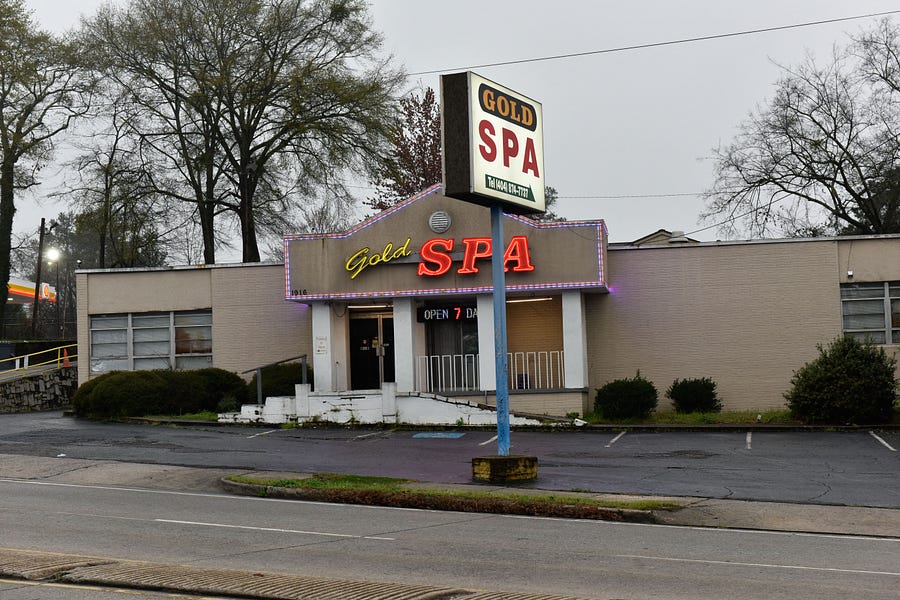It always happens. Every time there is a mass shooting—often before we even know the number and identity of victims—there’s a desperate and immediate quest to know who was the shooter and what were his motives. Part of this is understandable, human, and necessary. When innocent women and men are gunned down in cold blood something in our spirits cries out, “Why?”
But another part of this quest for an immediate explanation is toxic and destructive. Every single mass shooter (and, sadly, there are many of them) becomes an immediate weapon in the culture war. Did the shooter wear the red jersey or the blue jersey? Does he fit or defy an existing narrative?
Soon enough, the partisan argument drowns out the answer to the necessary question. We still need to know the reasons each shooter kills—no matter whose partisan or religious ox is gored.
And that brings me to the Atlanta shooter (I will not use his name). Last week a young man walked into three metro Atlanta massage parlors and killed eight people, including six Asian women. Why did he do it? According to police, the shooter said he suffered from “sex addiction” and shot the women because “they were a temptation for him he wanted to eliminate.”
Does that mean there was no racial component to the killing? Well, no. For one thing, we don’t automatically take a killer’s word as the final explanation for his motives. For another thing, his actions provide their own testimony. The identity of his victims is plain to see. Moreover, there are disturbing cultural patterns that sexualize and exploit Asian women. There is much we still don’t know. At the very least we can and should mourn with our Asian American brothers and sisters and understand (and share!) their heightened concerns.
In the days following the shooting, however, the evidence of the shooter’s sexual confusion and dysfunction continued to mount. And so it’s important to focus on what we do know, on where the evidence is leading us now. The shooter is a Christian young man, baptized in a local Baptist church. He struggled so deeply with sexual sin that he was a patient at a local Evangelical treatment facility, called HopeQuest. He reportedly told a former roommate at a different recovery center that his “very salvation was at stake” if he couldn’t overcome his sexual sin.
Each Sunday, David French delivers an edition of his French Press newsletter with a focus on faith and cultural issues. Join the conversation by becoming a member of The Dispatch – a new source for fact-based news and opinion informed by traditional conservative principles. We’re building a community of members who value civility and considered analysis without partisan rancor. Learn more about The Dispatch, here.
This is a preview of the March 21, 2021 edition of the French Press newsletter. Click to read more.







Please note that we at The Dispatch hold ourselves, our work, and our commenters to a higher standard than other places on the internet. We welcome comments that foster genuine debate or discussion—including comments critical of us or our work—but responses that include ad hominem attacks on fellow Dispatch members or are intended to stoke fear and anger may be moderated.
With your membership, you only have the ability to comment on The Morning Dispatch articles. Consider upgrading to join the conversation everywhere.